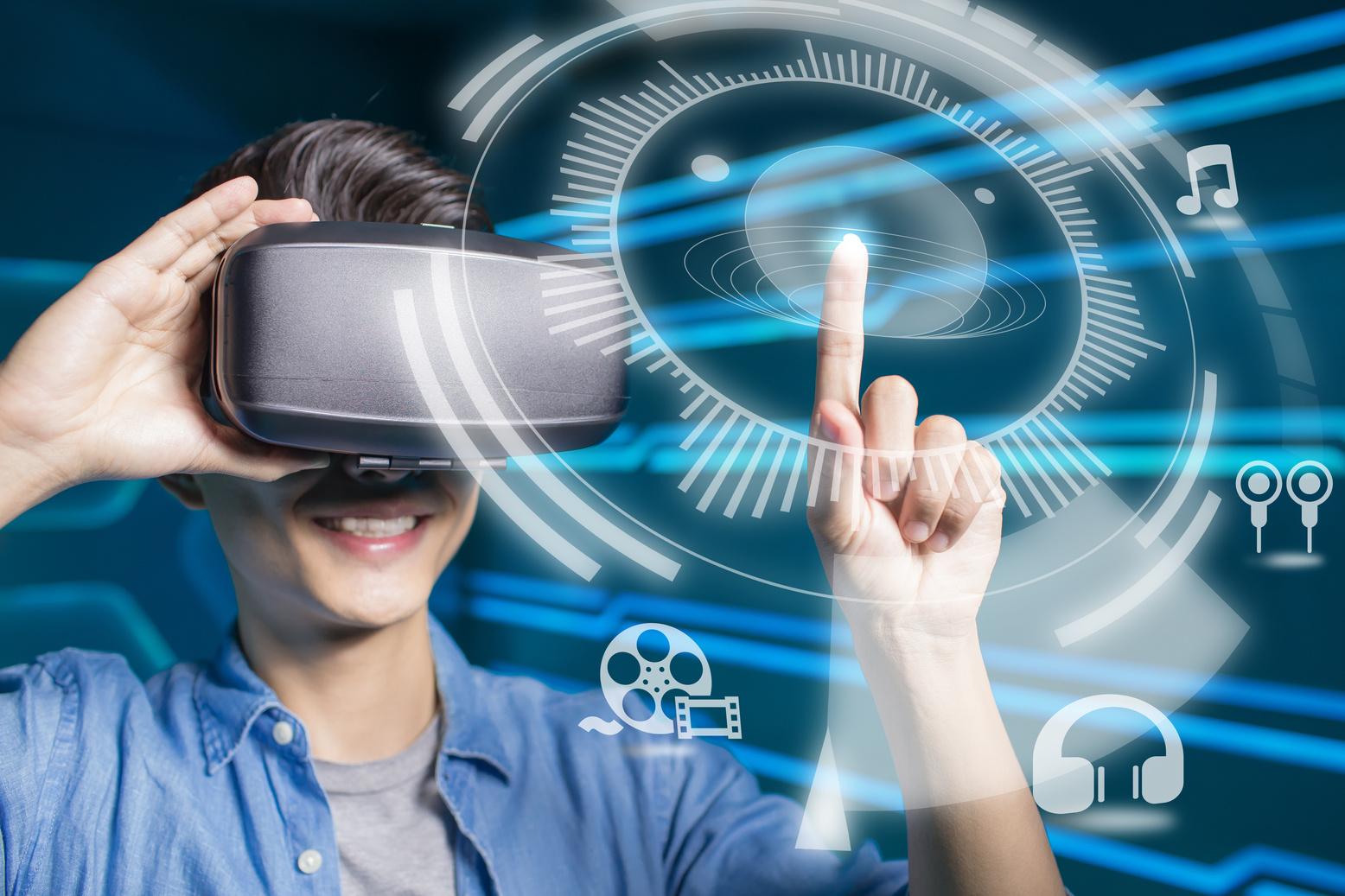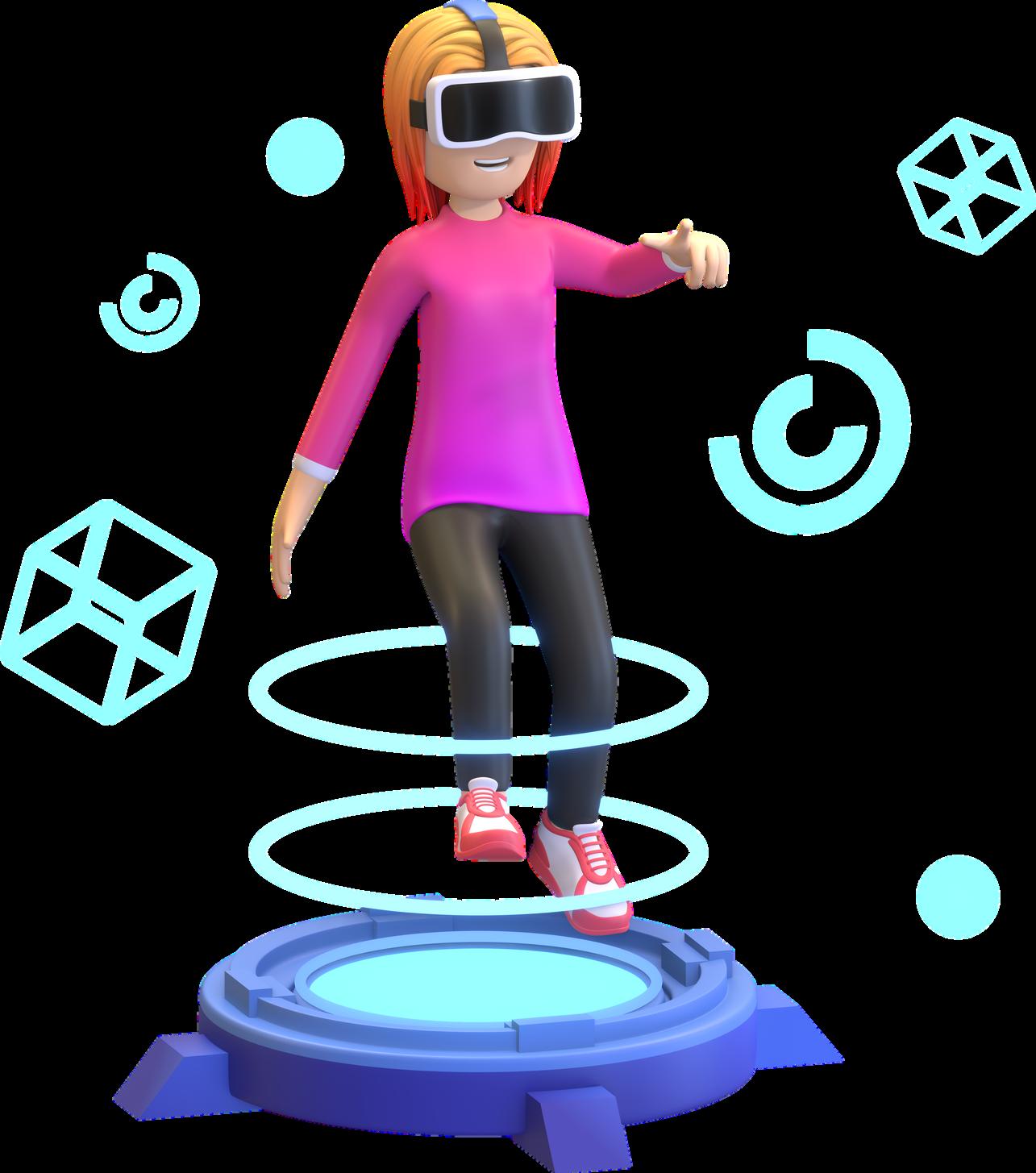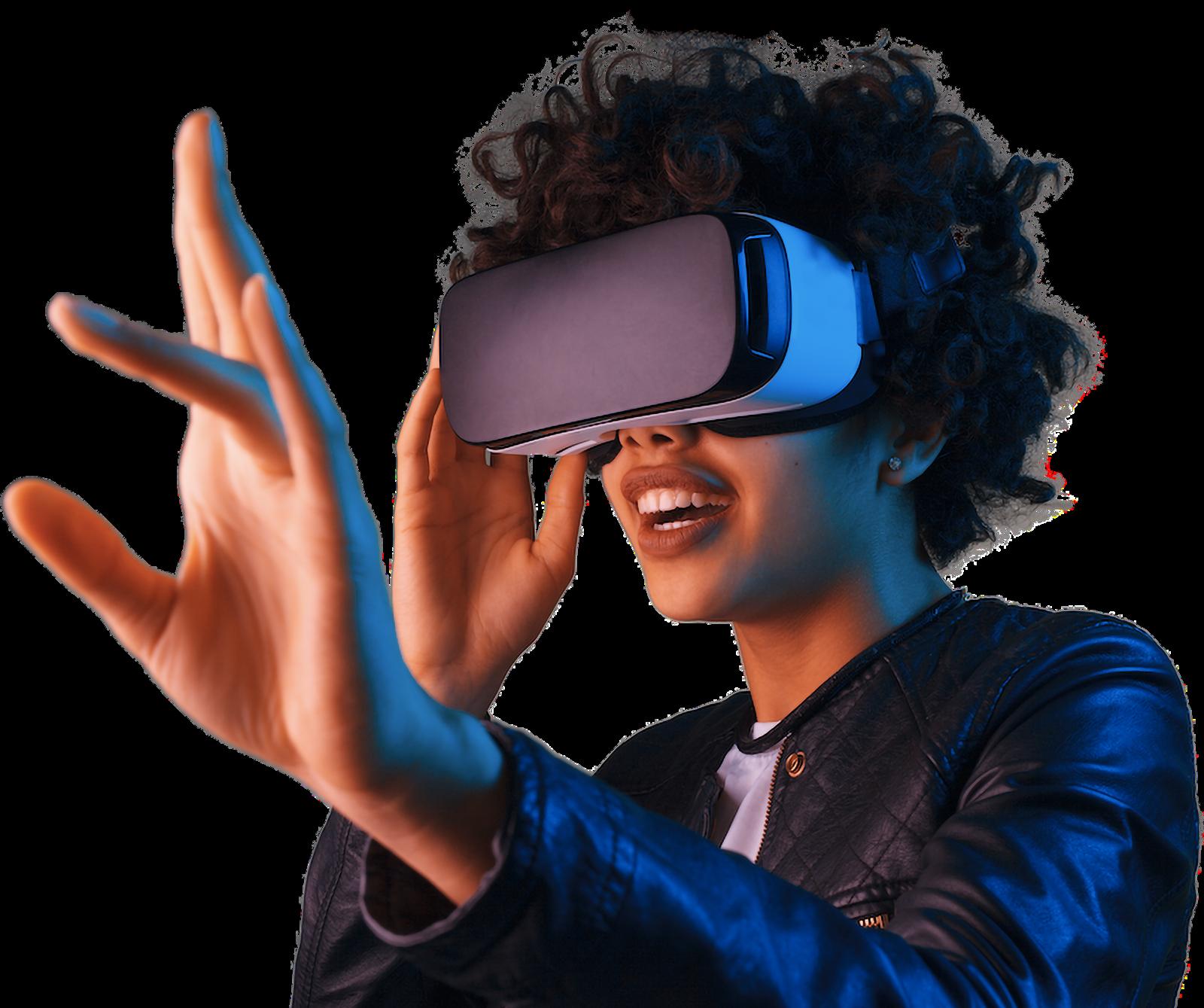APP DEVELOPMENT WITH EXTENDED REALITY (XR)





Virtual reality (VR), augmented reality (AR), and mixed reality immersive learning systems are all referred to as "extended reality" (XR) (MR).
Immersive technologies, like XR, are continually developing, and this development is giving businesses new opportunities to engage with their customers. This means that in order to create immersive apps that are both fun to use and productive, developers need to be knowledgeable about the most recent technologies.


A form of extended reality called virtual reality (VR) immerses the user in a fictional or virtual setting that replicates the actual world. Businesses may better understand and engage with their customers by using VR to create immersive experiences. Virtual reality (VR) has the potential to improve consumer relationships and enhance sales and loyalty. Developers can make apps that are specialised to the demands of the consumer by studying the many ways that businesses are utilising VR.

Through the use of smart devices, augmented reality (AR) technology enables users to view the actual environment with virtual content superimposed on it. The immersive experiences that can be made using augmented reality have the power to transform the way we learn, shop, and interact with our surroundings. The use of augmented reality in the retail industry is particularly intriguing because it has the potential to alter how we perceive and acquire goods. Retailers can use augmented reality (AR) to give customers an entirely new understanding of products and even allow them try on clothing before making a purchase.

While businesses have only begun to scratch the surface of what’s possible with XR, the technology is already being used in a variety of different markets, including entertainment, education, healthcare, retail, and manufacturing. As the technology continues to evolve, it’s likely that we will see even more applications for XR in the future.
The entertainment and gaming sectors were among the first to adopt XR technology, and they today account for the majority of XR application markets. With their high levels of immersion and involvement, games and entertainment apps may help businesses better understand their customers. Developers may make apps that are customised to the unique requirements of the user by studying the many ways that businesses are employing XR.

XR can benefit healthcare in addition to improving the user experience. For instance, mental health is a crucial aspect of healthcare, and XR can help to promote mental wellness. Additionally, XR can be used to create medications and therapies, as well as to inform patients and medical professionals about various treatments. In conclusion, XR is significantly influencing a variety of economic sectors and people's lives all over the world.
Although there is a lot of promise for XR technology in many different businesses, the engineering and industrial sectors have so far reaped the most rewards. Engineers may rapidly and easily test how various components interact with one another by using XR to construct 3D models. This is especially helpful in fields like automotive manufacturing, where issues with component interactions can cause significant delays in the release of new products and even significant recalls.
Although there is a lot of potential for XR technology in many different businesses, the food industry has so far reaped the biggest rewards. Chefs may quickly and easily evaluate how various ingredients and cooking methods will effect the finished dish by using XR to create 3D models. This is particularly helpful in fields like fine dining, where issues with ingredient substitutions or overcooking can leave customers with unsatisfactory experiences.
XR offers distinctive learning opportunities and is anticipated to have an increasing impact on education at all levels. Compared to conventional techniques like lectures or textbooks, XR can offer a more immersive and interactive learning environment. Additionally, XR may be used to build virtual labs so that students can test out various ideas without having to buy expensive equipment. We're probably going to see even more XR applications in schooling as technology develops.
Another sector to quickly adopt XR technology is real estate. Real estate brokers can give potential purchasers a tour of properties using virtual reality (XR), just as if they were seeing them in person. This is a significant advantage for purchasers who are interested in houses spread across the nation or even the globe. Furthermore, XR can be used to build 3D models of homes that architects and engineers can use to plan repairs or brand-new construction projects.
Extended reality (XR) is starting to be recognised by businesses as a powerful tool for reuniting staff. Businesses may give employees a more involved and immersive learning experience by utilising XR. Employees may gain a deeper grasp of the goods or services they are working on thanks to this technology. Additionally, XR can be used to build virtual labs that let workers test out various ideas without the expense of expensive equipment.
Extended reality (XR) technology is transforming the travel and tourism sector by enabling people to travel the globe in safety. Travelers can now experience many locations without ever leaving their homes because to XR. Customers who are unable to travel because of physical or budgetary restrictions would particularly benefit from this.
Virtual tours of places that are hazardous or difficult to visit in person can also be made using XR. DEFENSE
Businesses across a range of industries are starting to use XR solutions to address real-world issues, proving that XR technology is not simply for consumer applications. The military is one such sector that is utilising XR to develop virtual training simulators. These role-playing exercises can be used to instruct soldiers on how to move through various terrains, react to enemy fire, and handle a number of other circumstances.


